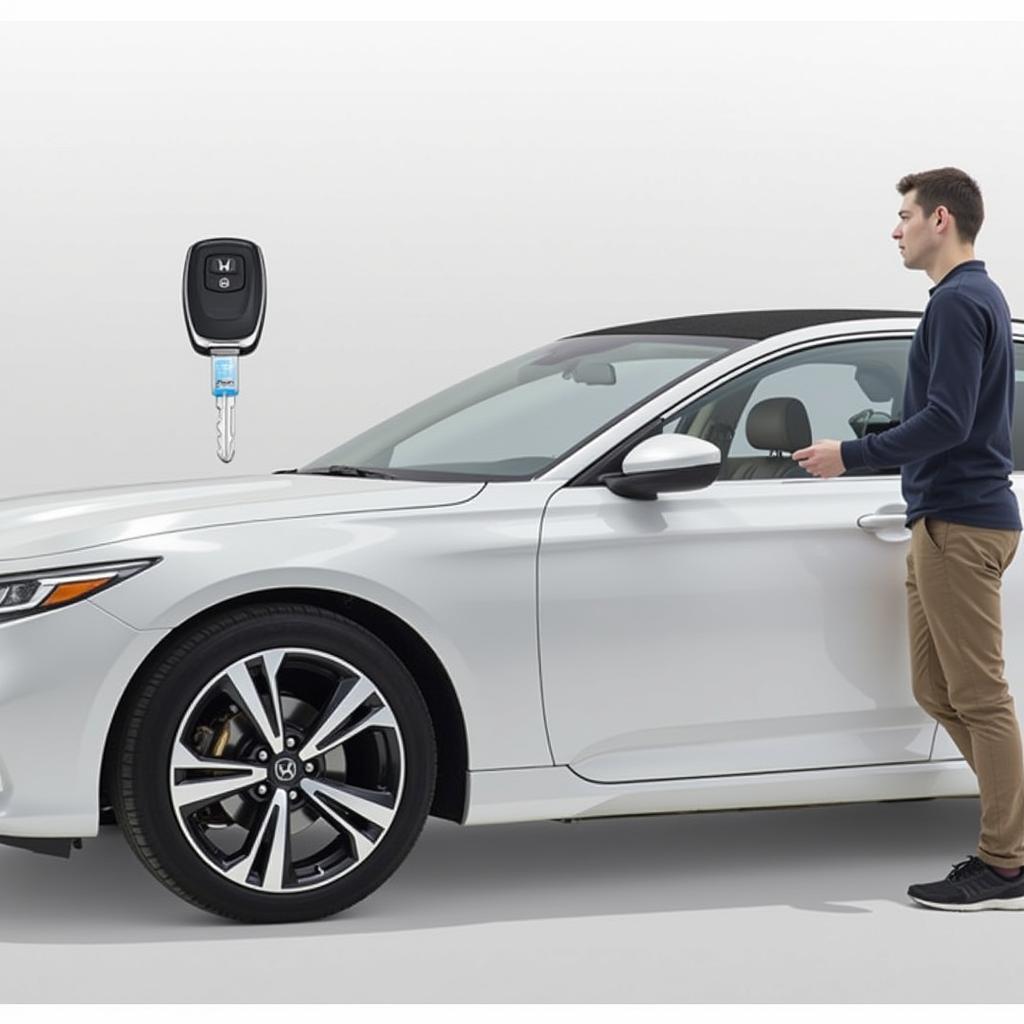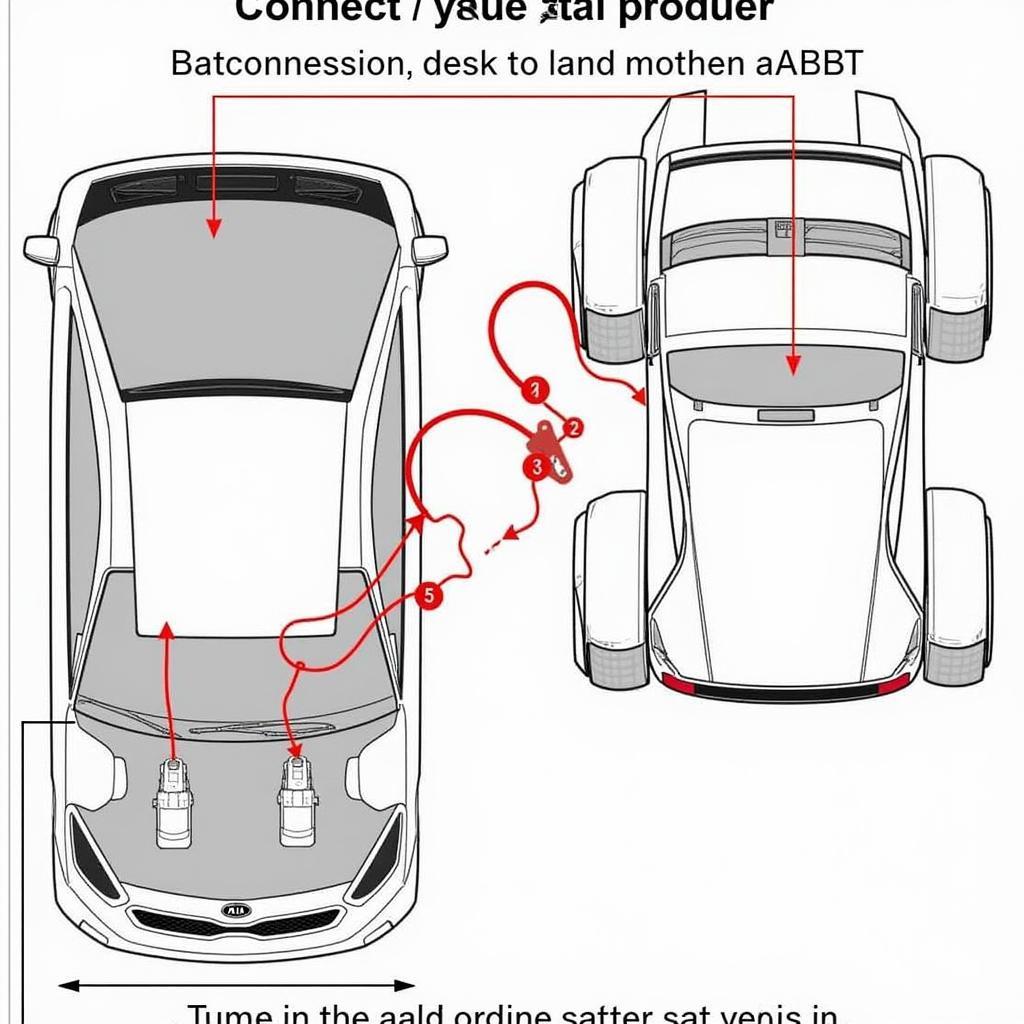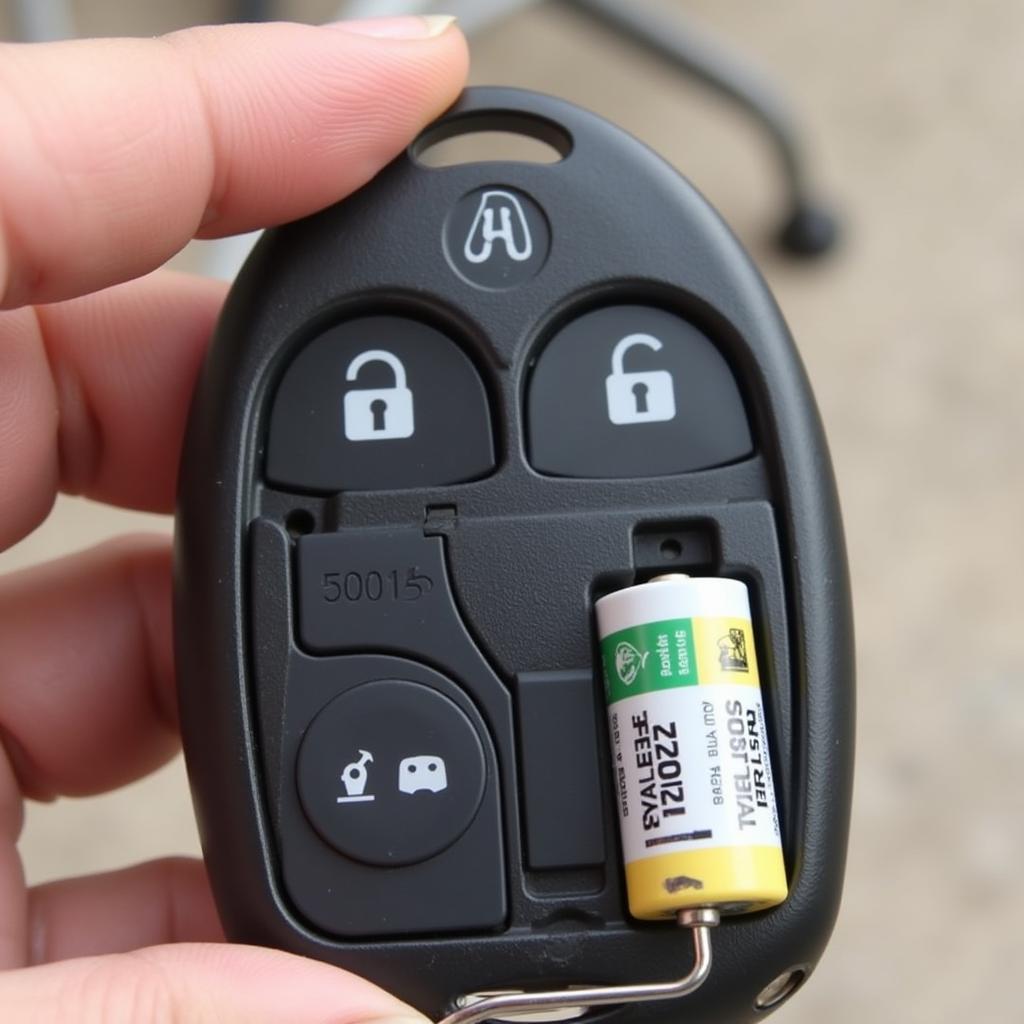A dead battery honda accord key fob can be a real headache. It can leave you stranded and unable to access your car. This comprehensive guide covers everything you need to know about your Honda Accord key fob battery, from identifying signs of a dying battery to replacing it yourself and even advanced troubleshooting tips.
Recognizing a Dying Honda Accord Key Fob Battery
Is your Honda Accord key fob acting up? Several signs indicate a dying key fob battery:
- Reduced Range: You might need to be much closer to your car for the key fob to work.
- Intermittent Function: The key fob works sometimes, but not others. This can be particularly frustrating.
- No Response: The key fob doesn’t respond at all, even when you’re standing right next to your car.
- Security System Issues: Your car alarm might go off unexpectedly, or you might have trouble locking or unlocking your car.
If you experience any of these symptoms, it’s likely time for a new battery honda accord key fob.
How to Test Your Honda Accord Key Fob Battery
While the above signs are strong indicators, here are more definitive ways to test your key fob battery:
- Try the Spare Key Fob: If you have a spare key fob and it works flawlessly, the problem likely lies with the battery in the original fob.
- Use the Physical Key: Most Honda Accord key fobs have a hidden physical key inside. If you can unlock your car with this key, it further points towards a key fob battery issue.
 Testing the Effective Range of a Honda Accord Key Fob
Testing the Effective Range of a Honda Accord Key Fob
Replacing Your Honda Accord Key Fob Battery
Replacing a battery honda accord key fob is surprisingly simple and can save you a trip to the dealership. Here’s a step-by-step guide:
- Gather Your Tools: You’ll need a small flathead screwdriver and a new CR2032 battery, readily available at most stores. You may find adding a car radio usb bluetooth receiver is also beneficial.
- Locate the Release Button: On the side of your key fob, there’s a small release button or switch. Press this button and slide the key fob apart.
- Remove the Old Battery: Gently pry the old battery out using the flathead screwdriver. Be careful not to damage the key fob casing.
- Install the New Battery: Insert the new CR2032 battery, positive side up, into the compartment.
- Reassemble the Key Fob: Snap the two halves of the key fob back together.
That’s it! You’ve successfully replaced your Honda Accord key fob battery.
Advanced Troubleshooting
If replacing the battery doesn’t solve the problem, consider these advanced troubleshooting tips:
- Check for Key Fob Damage: Inspect the key fob for any physical damage, such as cracks or broken buttons.
- Reprogram the Key Fob: In rare cases, you may need to reprogram your key fob. Refer to your owner’s manual or contact a Honda dealership for assistance. Sometimes, static on calls can be an unrelated issue, like with your car radio bluetooth static on calls.
- Consult a Professional: If you’ve tried everything and your key fob still isn’t working, it’s time to seek professional help.
“A common oversight is installing the battery incorrectly,” says John Smith, Senior Automotive Technician at Smith’s Auto Repair. “Always ensure the positive side is facing up. This simple check can save you a lot of frustration.”
Conclusion
A dead battery honda accord key fob can be inconvenient, but it’s a relatively easy fix. By following this guide, you can quickly replace the battery yourself and get back on the road. If you’re looking to upgrade your car’s audio, consider how to make a car radio have bluetooth or convert car radio to bluetooth with usb. For a simpler solution, look into an add bluetooth car charger radio. Remember, regular maintenance can prevent unexpected issues and keep your Honda Accord running smoothly. Don’t let a dead key fob battery ruin your day!


